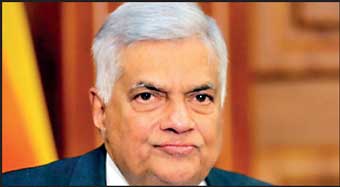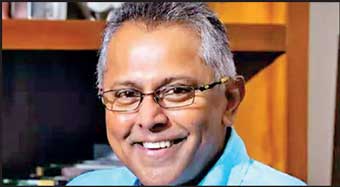Monday Feb 16, 2026
Monday Feb 16, 2026
Tuesday, 20 August 2024 00:22 - - {{hitsCtrl.values.hits}}
 |
| President Ranil Wickremesinghe |
 |
| Tourism Advisory Committee Chairman Hiran Cooray |
The Tourism Advisory Committee has expressed deep concern over the deteriorating state of the industry, attributing the decline in tourist arrivals to issues surrounding the controversial new e-visa system.
In a letter dated 15 August to President Ranil Wickremesinghe, industry leaders warned that the situation is pushing the tourism industry toward a standstill, despite the best efforts of stakeholders and authorities.
The Tourism Advisory Committee criticised the Depar-tment of Immigration and Emigration (DIE) for failing to fully comply with the Supreme Court’s directive. Instead of reverting to the previous Electronic Travel Authorisation (ETA) system, the department has only partially adhered to the Supreme Court and left the online visa issuance process in a state of uncertainty. They claimed that this has caused significant delays, leading to a decline in bookings and diverting potential tourists to other destinations.
On 2 August, the Supreme Court directed to suspend a contract awarded to a foreign consortium for managing Sri Lanka’s online visa processing. The contract, involving IVS, GBS and VFS Global, was halted due to concerns over its award without a competitive bidding process. Following the court order, the DIE shut down the electronic visa application website managed by the consortium.
The Supreme Court ordered that the DIE maintain the status quo as of 16 April 2024, before the introduction of the new system. Despite this, the relevant authorities have failed to reinstate the ETA system.
Against this backdrop, the Tourism Advisory Committee urgently called on President Wickremesinghe to intervene and ensure the swift reinstatement of the ETA system. They warned that failure to address the situation could lead to devastating consequences for both the tourism industry and the country’s economy.
Sri Lanka’s leading tourism associations, including the Sri Lanka Association of Inbound Tour Operators (SLAITO) and the Hotels Association of Sri Lanka (THASL), too have taken a strong stance against the DIE. They have warned the department’s Controller General that they will escalate the matter to the Supreme Court if the interim order is not adhered to. (See https://www.ft.lk/front-page/Travel-and-tourism-industry-writes-to-President-urging-swift-action-on-visa-issue/44-765698)
The associations collectively accused the Controller General of exacerbating the situation and hampering the country’s efforts to boost its foreign reserves through tourism.
Compounding the issue, the DIE has faced criticism for its handling of visa processing through Sri Lanka’s overseas missions.
After initially informing the Foreign Ministry that tourist and business visas could be processed through these missions, the DIE activated and deactivated this option twice within two days, without explanation. This has left on-arrival visas as the only viable option for travellers, further complicating the situation.
They also pointed out that several Sri Lankan missions abroad, including the High Commission in London, have lodged formal complaints, reporting an overwhelming number of inquiries and in-person requests that they are unable to handle.
These missions have alerted the Foreign Affairs Ministry to the significant negative impact this issue is having on Sri Lanka’s tourism industry and the broader economy.
They asserted that the ongoing issues with the visa system come at a critical time for Sri Lanka, as the country strives to recover after several years of multiple challenges and an economic crisis, citing it was essential that next high season is not impaired by the delay in activating the ETA system by the DIE.